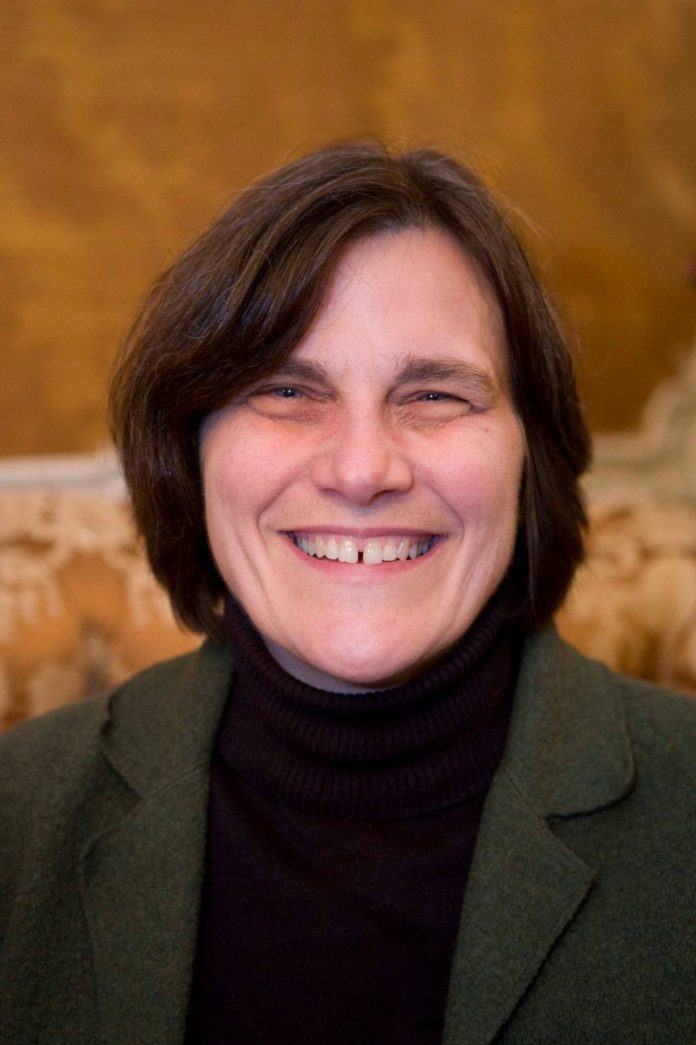
Paula Krebs, dean of the college of humanities and social sciences at Bridgewater State University, also is a board member of the Rhode Island Council for the Humanities.
She recently was featured in Inside Higher Education, where she discussed the importance of humanities studies in a community’s economic health.
PBN: You have said that the humanities are playing defense in the higher education world’s focus on job preparation. Why are the humanities as important as technical and soft skills?
KREBS: Imagine Providence with no humanities – no sense of history, no love of music, nobody talking about books or films or theater; Providence made up of business people who cared only about business. The business that got done would be pretty lousy business. All employers will tell you that an employee who knows how to do deep research, how to write a persuasive report, and how to make meaningful contributions in a small group project is a valuable employee. These are some of the things we teach in the humanities. But it’s not just skills we’re talking about: passion, appreciation for the perspectives of others, and a love of learning for its own sake are not the sole province of the humanities, but they are aspects of humanities teaching that make our graduates good citizens. The humanities cultivates dissent- it asks students to take a critical eye to what they read and study, not to say what’s wrong with a novel or a piece of music, but to understand how it works, why it works that way, how it could have been different, and why it is or isn’t important. Wouldn’t you want a worker who can do that?
PBN: What are some realistic professional fields those studying the humanities can enter after their college graduation?
KREBS: When I worked at a nonprofit in Washington, D.C., we hired humanities [graduates] to do everything from editing publications to keeping track of membership to running conventions. I have had students with humanities degrees go straight from college to work in the cosmetics industry, in public health, at newspapers, in finance, in public relations, in real estate – you name it.
PBN: Why is an investment in the humanities important for a community’s health and growth?
KREBS: The humanities help us to understand ourselves not simply as individuals, although they certainly do that, but also as members of communities and as participants in our historical moment – at local, state, national, and even global levels. If we study what it is to be human, how to think deeply and to empathize, how to analyze and to evaluate, how to understand ourselves and other people, we will be able to function in groups, to move together toward a common good, even while we debate what that good is. Citizens who are schooled in the humanities, who have cultivated a love of history, literature, philosophy, and the arts, make great supporters of the humanities in their communities – great board members for nonprofits, for example.
PBN: What is the Rhode Island Council for the Humanities most focused on right now?
KREBS: We are focused on outreach to all parts of the state and to facilitating the great humanities work that goes on in all kinds of communities across Rhode Island. We are trying to build a solid financial base that lets us use our National Endowment for the Humanities funding to make the biggest impact by supplementing it with support from Rhode Islanders who are committed to the humanities and who believe in their importance to our state.
PBN: How can educators in the humanities fields be better advocates for its importance?
KREBS: Educators can reach out more beyond our campuses to civic and cultural life – to hospitals, to retail operations, to manufacturing centers, and to local governments as well as to sports and entertainment organizations. We can connect these centers of work and community to our campuses, through internships, class assignments, and research projects. And we can invite representatives of the community onto our campuses to talk and to listen – to cultivate an understanding of the responsibilities of higher education to the community, but also to engender in the community a sense of its obligations to our young people in higher education.












